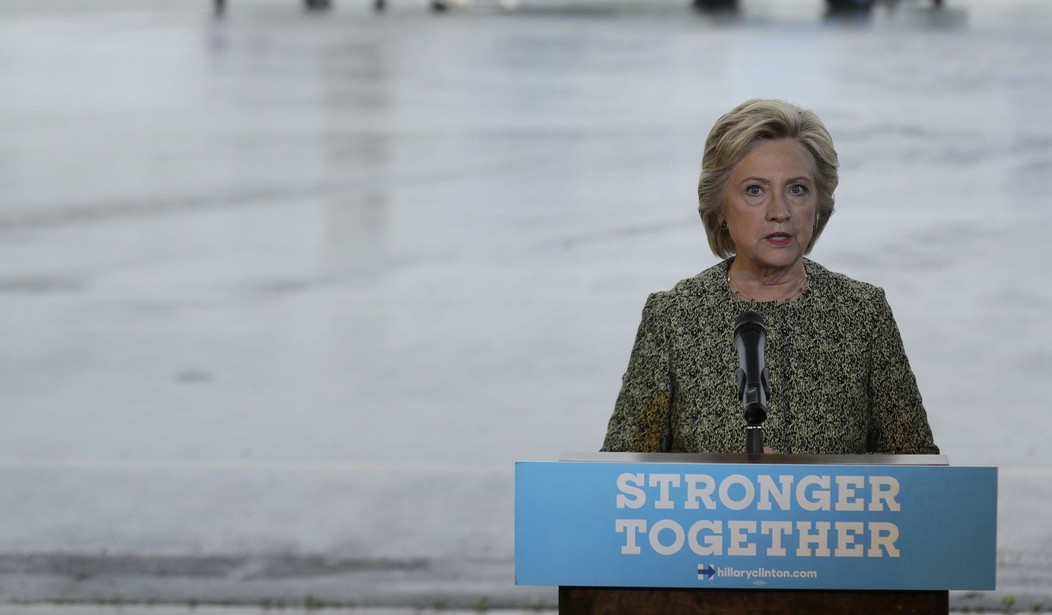It’s amusing to listen to flacks for Hillary Clinton, a pathological liar, plead with Lester Holt that he must play activist debate moderator, ready to pounce on Donald Trump’s misstatements. The Clinton campaign, when not reviewing immunity agreements, has put out a “Seven Deadly Lies” script in hopes of enticing Mr. Holt to go all Candy Crowley this evening.
Personally, I’d far prefer no moderator to an activist one. Correcting the adversary’s misstatements and turning them to one’s advantage is the debater’s skill – you’re not supposed to need the moderator’s help, you’re supposed to show us you can handle it on your own.
When I was a prosecutor, it was par for the course for defense lawyers to misstate the record in closing arguments to the jury. To leap out of one’s chair and scream, “objection” when this happened was both unsatisfying and risky. Usually, the most you’d get would be a tepid admonition from the judge that “the jury’s recollection of the evidence” – not the lawyers’ – is what matters. But if the judge did try to correct the record, there was always the danger that the judge would either get it wrong (in which case the prosecutor is in the awkward position of having to correct the judge and thus make the defense lawyer look good), or appear to be bullying the defense lawyer – which could engender the jury’s sympathy.
I always preferred to let the lawyers say what they wanted to say. I knew I’d get my turn to rebut. In so doing, I’d not only be able to show the jury that the defense lawyers had made misleading arguments; it would also be the perfect opportunity to argue that people only try to spin you when they know the truth destroys them – which became the launch point for repeating my three or four best facts. That is, the adversary’s falsehoods didn’t hurt me; they were a chance for me to make them look bad while reinforcing my own case.
In any event, I don’t know how interested people are in Mrs. Clinton’s favorite “deadly lie,” the fact that Trump has been disingenuous in claiming he opposed the U.S. invasion of Iraq. A number of us pointed this out during the GOP primary campaign (see, e.g., here), to no effect. Moreover, Clinton voted for the Iraq war and then became part of the withering Democratic campaign to undermine it. To me, that seems a lot more consequential than Trump’s comparatively uninformed and irrelevant meanderings on the subject. (By “comparatively uninformed and irrelevant,” I mean that Clinton, by comparison, (a) was a member of the Senate serving on the Armed Services Committee, who was thus keenly aware of the alarming intelligence regarding Saddam Hussein; and (b) famously accused General David Petraeus and Ambassador Ryan Crocker of lying about progress in Iraq after the surge.) It seems to me that Clinton’s harping about Trump’s stance on Iraq only calls attention to her own wavering – which even many Democrats have rebuked.
One lie I would like to see fact-checked, though, is Clinton’s repeated one – which she’s certain to rehash this evening, namely: The FBI’s year-long investigation “exonerated” her of wrongdoing in the email scandal.
In point of fact, the FBI merely drew the conclusion that Clinton should not be charged with a crime. Even if we assume for argument’s sake that this was a valid conclusion (in fact, it is hugely suspect), finding that someone should not be indicted is far from exoneration.
In Mrs. Clinton’s case, FBI Director James Comey expressly found that Mrs. Clinton and her underlings “were extremely careless in their handling of very sensitive, highly classified information.” Comey also took pains to point out that, under Mrs. Clinton’s leadership, “the security culture of the State Department in general, and with respect to use of unclassified e-mail systems in particular, was generally lacking in the kind of care for classified information found elsewhere in the government.”
Finally, Comey observed that, by recommending against the indictment of Mrs. Clinton, he did not mean:
to suggest that in similar circumstances, a person who engaged in this activity [i.e., being “extremely careless” with “very sensitive, highly classified information”] would face no consequences. To the contrary, those individuals are often subject to security or administrative sanctions.
“Security and administrative sanctions” in this context often means, at a minimum, the loss of one’s security clearance and, very likely, the loss of one’s job. A conclusion that one’s conduct would, under ordinary circumstances, render one unable to review classified information or work in a high-level government position is not exactly an “exoneration.”
Hillary Clinton’s inevitable “exoneration” claim should be fact-checked. It will be good for Donald Trump to do this if he is up to the task, rather than waiting on help from Lester Holt.









Join the conversation as a VIP Member